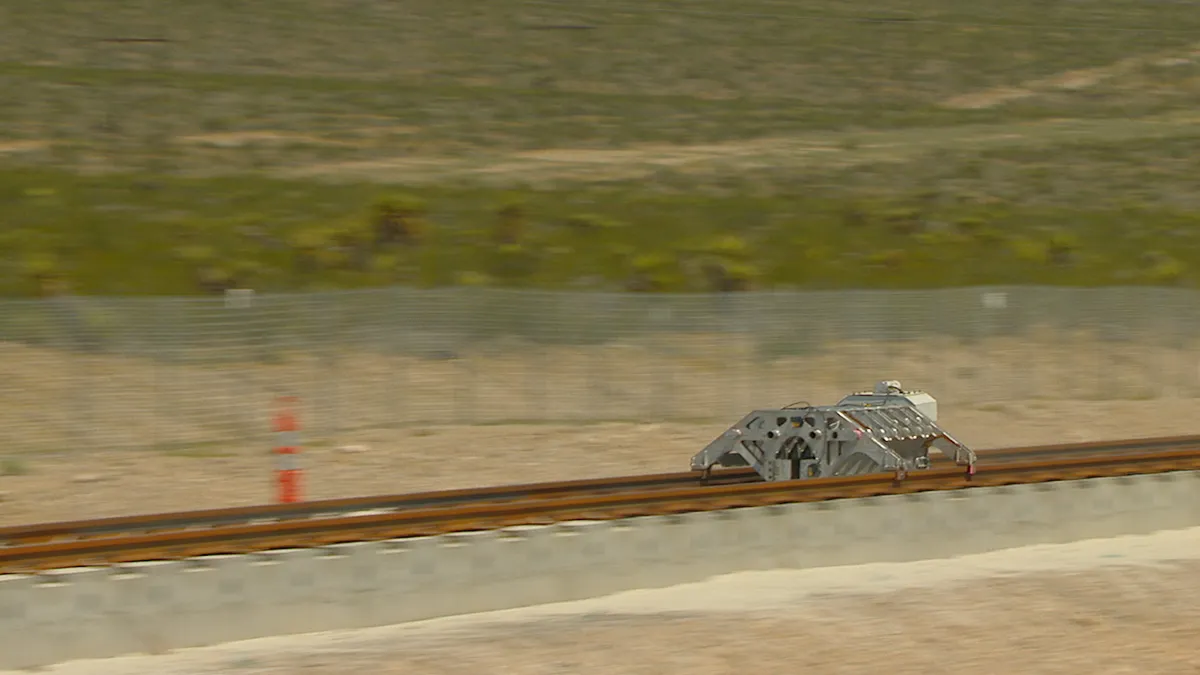UPDATE, Nov. 1, 4:45 p.m. — Virgin Hyperloop One has announced its intentions to break ground on a hyperloop route in 2019, according to Futurism. It's still unclear where construction will take place, though a route connecting Cheyenne, WY, to Denver and Pueblo, CO, is a strong contender. Tests at a production level, according to company CEO Rob Lloyd, are expected to commence in 2021.
Dive Brief:
- Colorado transportation officials will spend the next nine months calculating the resources needed to bring a Rocky Mountain hyperloop system to the area, USA Today reported.
- The proposed $24 billion route would have a central hub at Denver International Airport and extend 100 miles north to Cheyenne, WY, 125 miles south to Pueblo, CO, and 100 miles west to Vail, CO.
- State officials are working with AECOM and Virgin Hyperloop One (formerly, Hyperloop One) to study the system's potential. That study is expected to wrap up next summer.
Dive Insight:
With Colorado's population expected to grow by half over the next two decades, transportation officials say a hyperloop system may be necessary to help ease traffic and connect burgeoning population centers — and Colorado's not alone.
Elon Musk, the Tesla co-founder and creator behind the widely acclaimed hyperloop proposal, has floated the idea of a system connecting major East Coast population hubs in a 29-minute trip. That system, which would connect New York City to Washington, DC, by way of Baltimore and Philadelphia, has reportedly received verbal government approval to construct an ultra-high-speed rail tunnel, though Maryland Gov. Larry Hogan has been the only official to announce such approval publicly and for only the Washington to Baltimore segment of the tunnel.
Despite murmurings of potential U.S. systems, Virgin Hyperloop One has its eyes set on locations across the globe. The company announced 10 potential routes in September, four of which were in the U.S., and is now allocating resources to those teams to determine the top three commercially viable routes.
While hyperloop developers and the cities vying for those systems work to resolve the logistics behind securing the high-speed routes, the actual technology has a ways to go before it can reach Musk's ultimate goal. In August, then-Hyperloop One reached a passenger pod speed of 192 mph in five seconds — a far cry from Musk's ideal 700 mph speed.













